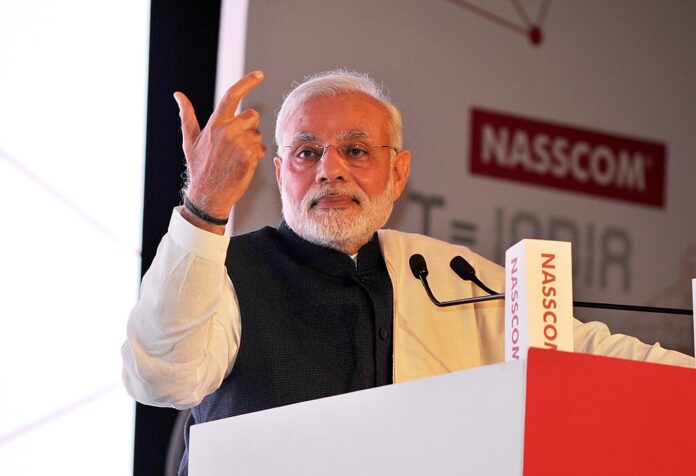Modi to return for a historic third term but will depend on alliance partners
In a surprising turn of events, Prime Minister Narendra Modi’s Bharatiya Janata Party (BJP) is poised to fall short of an outright majority in India’s 2024 elections. Despite this, Modi is set to secure a historic third term as prime minister, relying on coalition partners to form the government.
Modi, speaking at the BJP headquarters in New Delhi, hailed the election as the world’s “biggest victory,” even as ongoing vote counts suggested his party’s performance was below expectations. The National Democratic Alliance (NDA), led by the BJP, is on track to secure more than the 272 seats needed for a majority, though the BJP itself is expected to fall short of its 2019 tally of 303 seats.
During his speech, Modi celebrated the victory, emphasizing a new era of “big decisions” for India, including advancements in defence production, youth employment, and agricultural support. He framed the result as a win for democracy, despite the BJP’s diminished performance compared to earlier projections.
Opposition leader Rahul Gandhi of the Congress party thanked voters for “saving the Indian constitution” and expressed pride in the Indian people for resisting the BJP’s dominance. The opposition alliance, known as INDIA, performed better than expected, closely trailing the BJP-led coalition.
Modi’s bold claims of a sweeping victory, including slogans like “abki bar 400 paar” (this time, above 400), were quickly met with social media reactions and memes as the actual results unfolded. The BJP’s failure to secure a landslide reflects a more competitive political landscape.
Analysis
Political Impact: The 2024 election results mark a significant shift in Indian politics. Modi’s reliance on coalition partners to form the government will undoubtedly alter his administration’s dynamics. The BJP’s diminished majority forces Modi to negotiate and compromise with alliance partners, potentially tempering his ability to push through contentious reforms. This outcome could embolden the opposition, leading to a more balanced and contentious parliamentary environment.
Social Reflection: The election’s close result underscores the growing divide in Indian society over Modi’s policies and leadership style. While Modi’s populist rhetoric and strongman image have galvanized significant support, a substantial portion of the electorate remains resistant, as evidenced by the strong performance of the opposition. This polarization highlights the diverse and often conflicting priorities within the Indian populace, from economic development and job creation to social justice and minority rights.
Psychological Aspect: Modi’s reaction to the election results reflects a blend of triumph and defensive justification. His assertion of victory despite not achieving a majority indicates a psychological resilience and determination to frame the narrative positively. For the electorate, the mixed results may foster a sense of validation among Modi’s critics and a renewed hope among his supporters, perpetuating the deep emotional investment in the country’s political future.
Sociological Angle: The results signify a critical juncture for Indian democracy. The electorate’s varied responses illustrate the complex interplay of regional, cultural, and economic factors influencing voter behaviour. The strong showing by regional parties and the opposition suggests a demand for more inclusive governance that addresses local issues and marginalized communities. This election could prompt a reevaluation of the centralization of power and foster greater regional representation.
Fashion Culture: While the election itself does not directly impact fashion culture, the broader social and political trends influenced by these results could indirectly shape cultural expressions, including fashion. Modi’s emphasis on traditional Indian values and nationalism may continue to inspire trends that celebrate indigenous textiles and craftsmanship. Conversely, the opposition’s success might spur a resurgence in more progressive and cosmopolitan fashion statements, reflecting a push for diversity and modernity.
